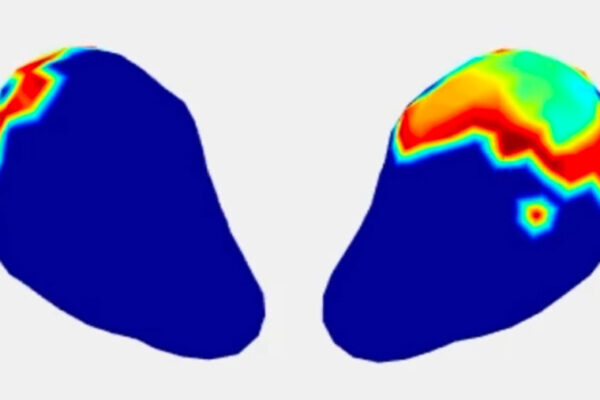In a paper published in IEEE Transactions on Biomedical Circuits and Systems, researchers at Washington University in St. Louis describe a portable uterine-contraction tracker: a cheap-to-make, flexible electrode patch.
Shantanu Chakrabartty, the Clifford W. Murphy Professor in the McKelvey School of Engineering, and Chuan Wang, associate professor of electrical & systems engineering in McKelvey Engineering, led an effort to shrink down a technique invented by Yong Wang, associate professor of obstetrics and gynecology at the School of Medicine, who was also a collaborator on this new work. Weilun Li, a doctoral student in Chakrabartty’s lab, is the first author on the paper.
Chakrabartty’s lab created a battery-powered portable instrument that connects with a stretchy patch that places electrodes around the wearer’s abdomen. The electrodes detect both maternal heartbeat and EMG signals, which correspond to uterine contractions. Chuan Wang created flexible electrodes that Chakrabartty’s group used to build the device.
The portable device is a proof of concept. Chakrabartty said he envisions a future where a pregnant person could wear such a device most of the day in their own homes. It would wirelessly transmit continuous data to their doctor’s office, who would immediately be aware of any concerning changes in the pregnancy without the need to have patients come in person.
The research was funded by the Bill and Melinda Gates Foundation, which intends to commercialize the technology and distribute it in low-income countries.
Read more from the McKelvey School of Engineering.



Comments and respectful dialogue are encouraged, but content will be moderated. Please, no personal attacks, obscenity or profanity, selling of commercial products, or endorsements of political candidates or positions. We reserve the right to remove any inappropriate comments. We also cannot address individual medical concerns or provide medical advice in this forum.